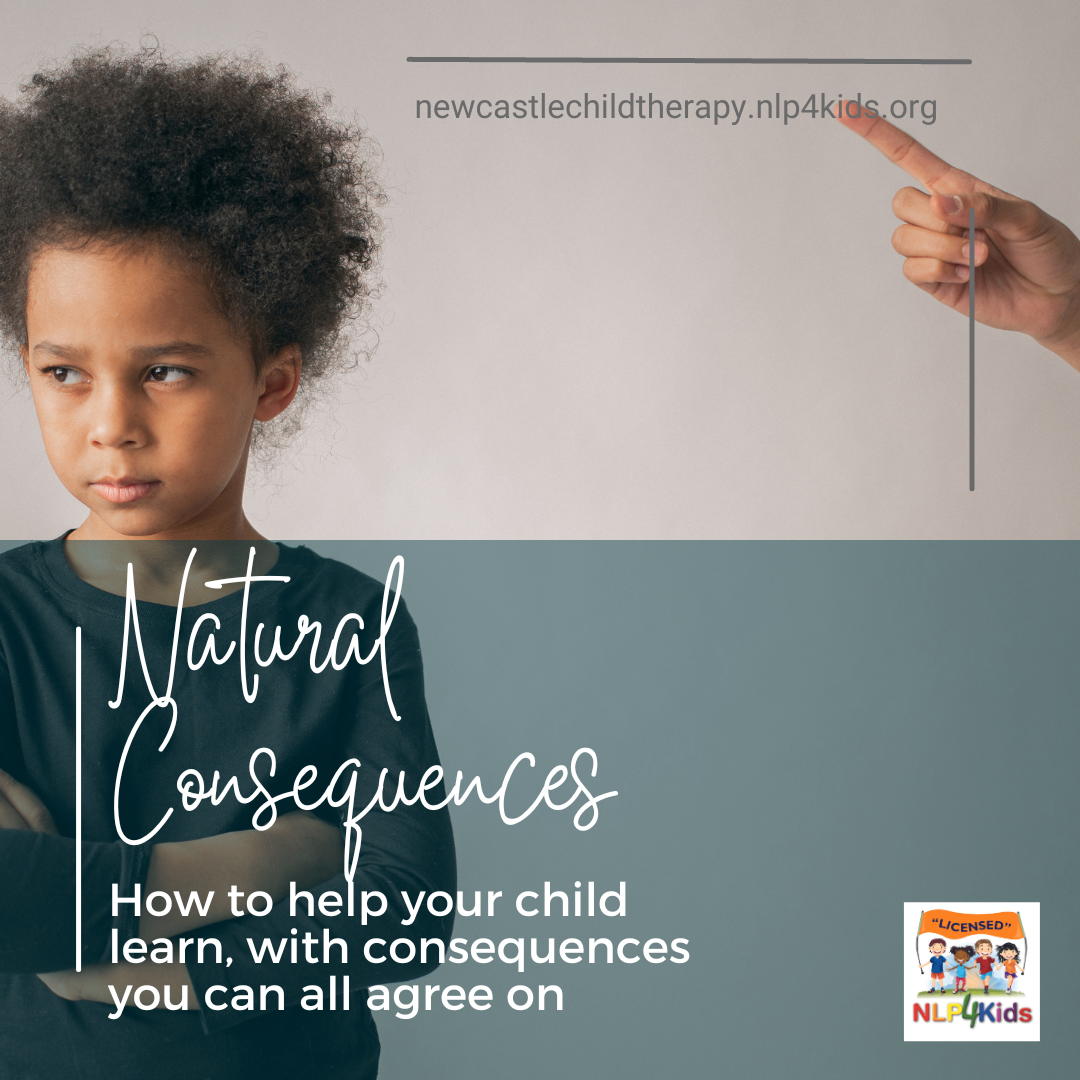Natural Consequences

I genuinely thought that I had come up with this term. I originally used it to explain to children’s home staff why it was important to relate consequences to behaviour and it seemed to make sense to them so I kept using it. Then I googled it and found out it’s in pretty common usage, although it means something slightly different.
Apparently what I am talking about are often referred to as “logical consequences”. Natural consequences are the consequences that naturally follow from the behaviour without parents having to actively put them in place.
The distinction between natural and logical consequences isn’t actually particularly important though. The important thing is the principle. It has been obvious to me over many years working with children that children respond best to consequences that make sense to them and are related to the behaviour that you would like to change. This is what I mean by natural consequences.
Why Does it Matter?
If the consequence is unrelated to the behaviour then there is a risk of increasing the child’s frustration and increasing the distance between you and your child. If a child understands a consequence and has ideally been able to have some input in it, then it is much more likely to be effective in the long term.
I’ll give you an example. My son loves playing FIFA on the Xbox. However it can turn him into a right grumpy little thing when it is time to come off. As my kids have got older and the bedtime routine has become less rigid it gradually became the case that he would often be playing immediately before bedtime.
This did not work. At all! He would get angry when it was time to come off. Then he would sulk and refuse to brush his teeth. Then once he had brushed his teeth he would be in such a mood that he would refuse to read his book and would end up going straight to sleep in a bad mood. Not the peaceful bedtime I wanted for him!
It doesn’t take a genius to work out that the Xbox needed to go. BUT it’s not about what you do, it’s about how you do it:
Three Steps to More Harmonious Outcomes:
- Talk about it – Get the child on board with understanding the issue. Kids are naturally self-centred so focus on their needs. In this case something along the lines of “I know that you love the Xbox and it is really normal to get frustrated by it, but when you play so close to bedtime that means that you are going to bed feeling angry and frustrated. Do you like it when you feel that way at bedtime?” Of course he didn’t like it, so this increases the motivation to change.
- Come up with a plan together – Kids see the world differently from adults. You might have an idea about how to sort out the problem but kids have ideas too and it is important that they feel listened to. My son identified that it was a particular game mode that got him most frustrated so he suggested that he didn’t play that mode anymore.
- Be clear with each other about the outcomes. I was happy to try out his plan first BUT I explained that if his plan didn’t work then we would use my plan which was to turn off the Xbox one hour before bedtime. He agreed, probably initially because he thought his plan would work but also because he was motivated to change things.
What are the Benefits
The outcome of this is probably quite predictable. His plan didn’t work. The Xbox gets turned off one hour before bedtime now. He has never argued about it though because he understands why and he doesn’t perceive it as a punishment that was imposed on him.
He’s learned problem solving, negotiation, flexibility and responsibility, rather than just being annoyed that I took his Xbox away. Consequences should always be about learning so I’m going to take that as a parenting win.
And just to be clear I have used this strategy with a huge variety of children, with a huge variety of needs, including those with significant trauma and learning needs. It really does work for both parent/carer and child. Give it a try and see what a difference it can make.
Jo Atkinson – NLP4kids Therapist and Parenting Coach
newcastlechildtherapy.nlp4kids.org
www.jo-atkinson-parentingcoach.co.uk

Leave a Reply